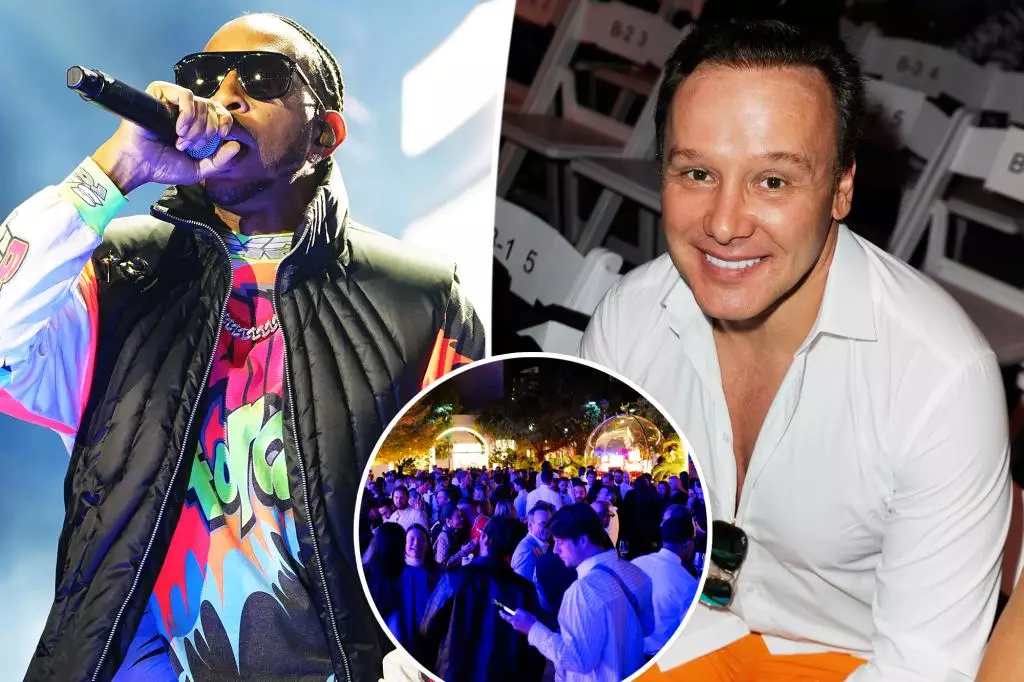Art Basel, one of the most prestigious art fairs in the world, is a cultural phenomenon that transforms cities into vibrant hubs of creativity and expression. In Miami, however, this annual event often merges with the glitz and glamour of affluent soirées, creating a paradox that pits community standards against the lifestyle of the elite. Recent legal battles over the new “Art Week PHS House Party Resolution” reveal much about this ongoing conflict.
The crux of the debate emerged when notable Miami residents, including plastic surgeon Leonard Hochstein and Farmasi CEO Sinan Tuna, attempted to halt the implementation of stricter regulations targeting extravagant house parties during this high-profile week. Their emergency motion for a temporary injunction, which aimed to preserve their ability to host lavish gatherings without the need for permits, encountered legal pushback. The courts ruled against them, emphasizing that the city has a valid interest in regulating public events that significantly disrupt the local community.
It’s crucial to recognize the broader implications of this legal decision. While those who filed the injunction were motivated by a desire to celebrate unabashedly, their actions highlighted a dismissive attitude towards the voices of local residents—many of whom have expressed frustration over disruptions caused by these mega-parties. The ruling reflects a growing trend among municipalities to impose regulations that curb the excesses associated with high-profile events, prioritizing community welfare and public safety over individual privilege.
The Art Week regulations are not merely local ordinances; they represent a fundamental shift in how communities manage the convergence of culture and commerce. The rules introduced limitations on occupancy, noise levels, and parking, all aimed at preventing disturbances that residents deem intolerable. This strikes a chord, especially in high-end neighborhoods where exclusivity is a hallmark, yet daily life is disrupted by the very events designed to celebrate art and culture.
More than just noise complaints, the incident underscores a moral obligation to ensure that lavish displays of wealth do not infringe upon the quality of life for local residents. Miami Beach Vice Mayor Alex Fernandez’s comments encapsulate this sentiment, asserting that no individual—regardless of wealth or fame—should be exempt from the law. The judiciary’s support of the city’s regulations is a significant affirming of local governance and community rights, moving beyond a mere exercise of power to the protection of public interests.
Despite the court’s ruling against the temporary injunction, Miami’s elite are finding ways to adapt to the new regulations. For instance, Hochstein is set to host a more exclusive version of his Nylon magazine party, complete with controlled access through wristbands and logistical improvements such as shuttles to alleviate traffic. This move illustrates a precarious balance between maintaining the spirit of the event while adhering to rules that, although inconvenient, were established to enhance community harmony.
Nylon owner Bryan Goldberg’s comments regarding the city’s “reasonable agreement” reflect a willingness to compromise amidst the tensions. While he acknowledges the constraints imposed by the permit requirement, it also suggests an understanding that any successful cultural event must account for the wider community’s interests. Events like Art Basel should ideally celebrate the intersection of art, community, and commerce. However, when exclusivity turns chaotic and displacing, it becomes imperative to reevaluate how these gatherings are executed.
Ultimately, the intersection of high society celebrations and communal well-being in Miami will require ongoing dialogue and adjustment. The events surrounding Art Basel serve as a microcosm for a larger cultural reckoning—where art, addiction to opulence, and the everyday lives of residents converge. The recent legal outcomes highlight not just a battle over noise, but rather the need for a collective vision where culture does not come at the expense of community. In redefining the social landscape of Miami, it becomes essential to honor both artistic expression and the integrity of the neighborhoods that host such vibrant celebrations.

